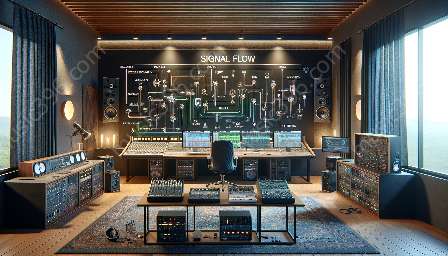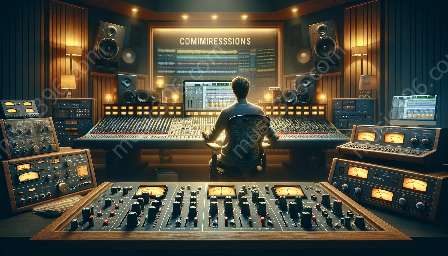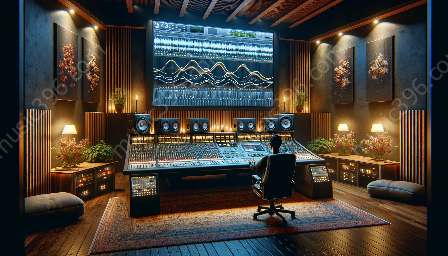In the ever-evolving field of audio mastering, there are several future challenges and opportunities that await professionals in the music industry. As technology continues to advance, the role of mixing and mastering in music production is also undergoing significant changes. This topic cluster aims to delve into the future of audio mastering, its impact on music production, and the opportunities and challenges that lie ahead.
The Role of Mixing and Mastering in Music Production
Before diving into the future of audio mastering, it's essential to understand the pivotal role that mixing and mastering play in music production. Audio mixing involves blending individual tracks to create a cohesive and balanced sound. It involves adjusting levels, panning, and adding effects to enhance the overall sound quality. On the other hand, audio mastering focuses on refining the mixed tracks to achieve a polished and consistent final product. It involves optimizing the overall tonal balance, enhancing the dynamics, and preparing the music for distribution across various platforms.
The Impact of Audio Mixing and Mastering on the Music Industry
With the rise of digital music consumption and the proliferation of streaming platforms, the demand for high-quality audio mastering has never been greater. Music listeners expect songs to sound consistent and professional across different devices and platforms. Audio mastering plays a crucial role in meeting these expectations by ensuring that music is optimized for various listening environments.
Future Challenges in Audio Mastering
Despite the advancements in technology, audio mastering professionals face several challenges as they navigate the future of the industry. One of the primary challenges is the need to adapt to changing listening trends and technologies. With the increasing popularity of immersive audio formats like Dolby Atmos and 360-degree sound, mastering engineers must develop new techniques to optimize music for these formats while maintaining the integrity of the original mixes.
Furthermore, the rise of artificial intelligence (AI) and machine learning in audio processing poses a challenge to mastering engineers. AI-powered mastering tools are becoming more sophisticated, raising concerns about the potential impact on the role of human mastering professionals. Balancing the benefits of AI-assisted mastering with the traditional artistry of human engineers is a challenge that the industry must address in the coming years.
Opportunities in Audio Mastering
Amidst the challenges, the future of audio mastering also presents exciting opportunities for professionals. The continued evolution of audio technology opens doors for innovation in mastering techniques. Engineers can explore new tools and software that empower them to achieve higher levels of precision and creativity in their work.
Additionally, the growing demand for high-resolution audio and the resurgence of vinyl records offer opportunities for mastering engineers to showcase their skills in delivering premium audio experiences. As the industry emphasizes quality over quantity, mastering professionals can focus on refining the sonic details and textures of music, catering to audiophiles and enthusiasts seeking unparalleled audio fidelity.
Conclusion
The future of audio mastering holds both challenges and opportunities for professionals in the industry. As technology continues to shape the landscape of music production, mastering engineers must adapt to new formats and listening trends while leveraging innovative tools to enhance their craft. Embracing these changes and capitalizing on the emerging opportunities will be key to shaping the future of audio mastering and its role in the music industry.































